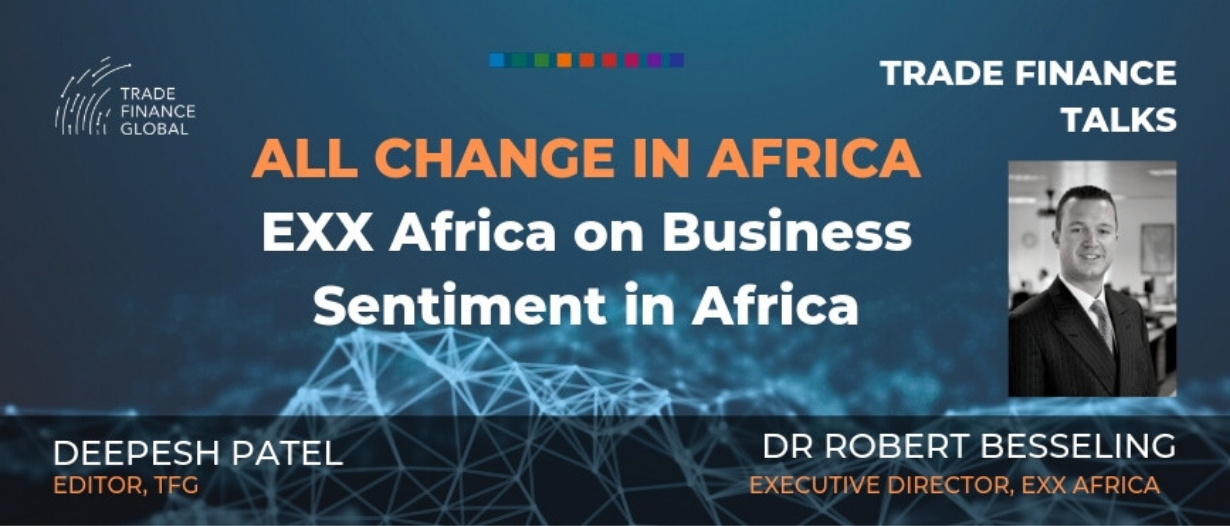Listen to this podcast on Spotify, Apple Podcasts, Podbean, Podtail, ListenNotes, TuneIn, PodChaser
Season 1, Episode 9
Host: Deepesh Patel, Editor, Trade Finance Global
Featuring: Dr Robert Besseling, Executive Director, EXX Africa
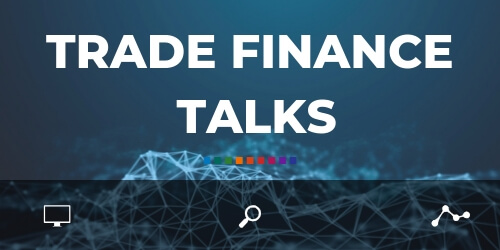
All Change in Africa: EXX Africa’s Dr Robert Besseling on the Business Sentiment in Africa
Deepesh Patel: I’m Deepesh Patel, Editor at Trade Finance Global.
To date, Africa has seen pockets of regional growth this year, and we’re speaking to EXX Africa’s Robert Besseling to find out more. With so much hearsay and risk coming out of Africa, and the continent constantly making international news and the headlines, we often don’t hear much about what’s actually happening on the ground. There are so many macro-economic factors at a regional level that could help catalyse some of the small- to mid-sized economies, providing pockets of opportunity and growth in Africa, but there is often a lack of quality data, intelligence and reporting.
So we’re joined today by Robert Besseling, Executive Director of EXX Africa, to find out more about what’s been happening so far this year and what business leaders, financiers and policy makers should be talking about when it comes to regions and countries within Africa; home to 1.2 billion of the world’s population.
So, without further ado, here is Robert, joining us from Johannesburg, South Africa! Hi Robert, thank you so much for joining us on today’s podcast!
Robert Besseling: Hi, Deepesh. Good to talk to you today.
DP: So elevator pitch: in no more than 30 seconds, tell us a bit about yourself and EXX Africa.

RB: EXX Africa is a company that I founded in 2015. The company provides analysis and forecasts on political risk, security risk and economic risk across all 54 African countries. We work mostly with some of the major DFIs, commercial banks and insurance companies, as well as some corporate governments and commodities traders. So, quite a broad spectrum of our clients who tap into our subscription platform on African risk.
DP: Robert, why Africa?
RB: It’s a key question Deepesh. I mean, there’s a lot of African news at the moment; cyclones in Mozambique, bomb attacks in the east, war and coups in various parts of the continent. So Africa is very pertinent at the moment. But then again, as you mentioned in your introduction earlier, there are pockets of economic climates. If you look just at the fastest growing economies in Africa, they also fall into the category of the fastest-growing economies in the world.
Economies like Ethiopia, for example, are growing again at more than 8% growth, in terms real GDP this year; various other African countries in the east and the west, like Ghana, Ivory Coast and Senegal, or Kenya, Tanzania and Uganda, are also growing at record rates, often over 6% of real GDP growth. So that’s what makes Africa exciting. And similarly, there are some key developments across the African continent, including, for example, the formulation of what could become the world’s largest trade free trade union. Again, this is a process which is in the process of being constructed, but a number of countries have signed up to it and are ratifying the deal, although it still needs to be implemented.
That might be thwarted to some extent, at least in some parts of the African continent, by a sense of nationalism, populism and economic protectionism. But generally speaking, it is the course towards free trade and fast-paced economic recovery.
Macroeconomic & Geopolitical Risk in Africa: Oil, Inflation and Interest Rates
DP: OK, so taking a high-level overview on Africa as a continent, what are the current key macroeconomic and geopolitical themes around trade, oil price, inflation and interest rates? What is the impact of these on financial markets?
RB: Most of Africa remains very shielded from the international financial system. Thus, global trends, such as inflation or interest rates, or global trade wars very often do not impact a number of African countries. That’s what we saw during the international global financial crisis and various other global trends. That is starting to change though; we are seeing more and more countries being exposed to global trends like rising US interest rates, or the volatility in the oil price, etc.
But generally speaking, we have to look at Africa as a collection of regions, as opposed to a collection of countries. For example, in the east African region, we can start to see trends in trade volumes and intra-regional trade, and we can see the volatility in the oil price climate having an impact on regions, rather than on the continent of Africa as a whole. Africa is starting to change, and it’s becoming more exposed to international trends, but it is still very much a progress.
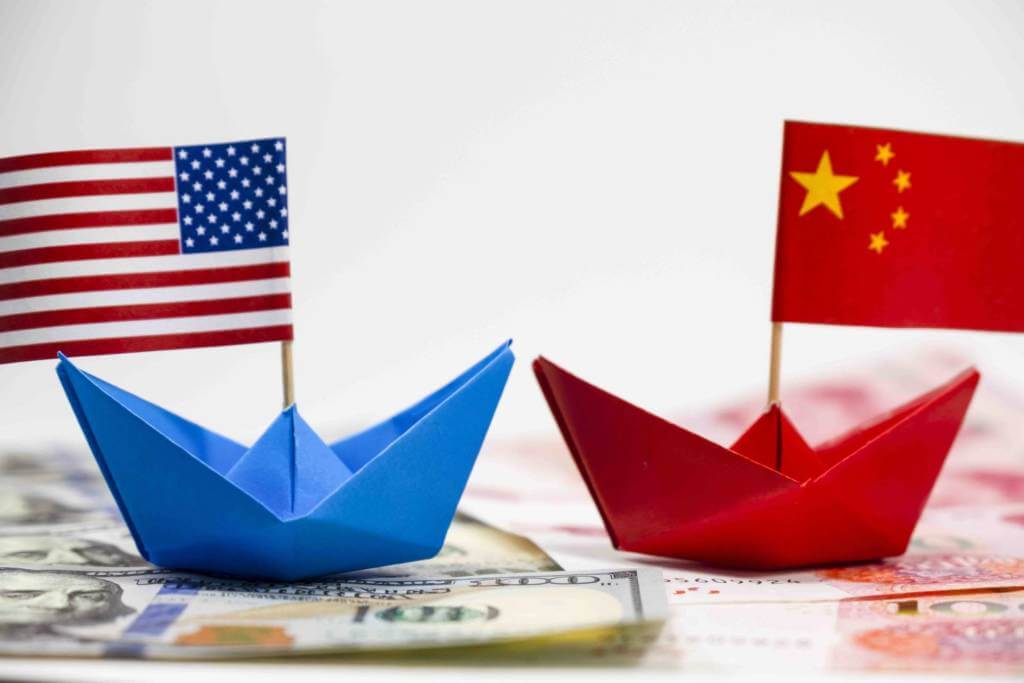
DP: Which regions are most exposed to the international ecosystem in terms of the US-China trade war and Brexit? What impact are those factors having on the need for funding and investor sentiment in those regions?
RB: Africa is obviously watching the US-China trade war and other geopolitical events, like Brexit, with great interest, because on one-hand, it is a threat, like it is to other parts of the world, where it could diminish trade, and it could uproot existing investment and trade agreements. On the other hand, because Africa has been left out of many of these agreements in the first place, some African countries and African regions could, in fact, see a real advantage here. East Africa, for example, where most of the growth is coming from at the moment, is hoping to benefit on the back of an eventual Brexit process, by signing deals with key investors from the UK or with the British government, after the UK has left the European Union. After all, a country like Kenya or Tanzania would find it easier to deal with the UK alone, rather than dealing with the entire block of EU countries.
So that’s one aspect that we are already seeing in terms of the US-China trade war. The impact the trade war is having on the Chinese economy is already seeing a diminished appetite for commodities from Africa, which is beginning to taper off some of the demand, particularly around metals and other commodities coming from Africa.
However, China is already anticipating that the relationship with the US will likely diminish, so they’re looking for new opportunities and interconnected potentially through the BRI initiatives. Most of Africa’s governments has not signed up to this initiative, or the Belt and Road Initiatives, and China is really pushing greater interaction with African countries, not just outwards, exports from Africa into China, of raw materials, but also manufactured goods from China into Africa. Even Chinese trade is starting to affect the manufacturer’s goods in Africa.
So, you can see how the US-China trade war and Brexit are starting to change how trade and investment works in Africa. This could pose a threat, but there are a number of opportunities here as well.
Financial Inclusion in Africa
DP: Interesting, and we look forward to hearing these continued updates in terms of how certain regions in Africa are really jumping on some of the opportunities stemming out of potential uncertainty, volatility, trade wars, etc. Now, let’s look at the investor sentiment in a little more detail. Financial Inclusion is obviously at the top of the agenda for banks, with policymakers across the region, with a significant proportion of the you know, the reported 1.5 trillion US dollar trade finance gap, stemming out of Africa, African countries and also out of SMEs. How can investors find value in Africa’s credit markets to meet some of this unmet financing demand for small businesses? What are the biggest barriers to entry? And what needs to be done in order to open up this asset class for financing African trade?
RB: You’re absolutely right Deepesh, financial inclusion is crucial for African countries and African companies (particularly SMEs) to start tapping into this economic growth we were talking about earlier. The problem is that Africa’s credit markets are still very much restrained by the typical barriers to entry like regulations, restrictive legislation, etc.
I’ll give you a few examples. Look at Kenya, the largest economy in the east of the continent, which is really driving growth, trade and investments in east Africa. However, about two years ago, the Kenyan government imposed a cap on interest rates, which has made banking far less profitable than it was before. The local Kenyan banking sector is now being starved of liquidity and SMEs in east Africa and Kenya are failing to tap in to the banking sector locally.
Another key encouragement from the IMF and from international investors etc., is to consolidate Africa’s banking sector. This has happened in places like Nigeria, for example, which was very successful in 2009. After the banking crisis, various small- and medium-sized Nigerian banks were consolidated into national and even regional champions; that needs to happen in more places in Africa.
This has been critical for the success of Ghana’s banking sector, particularly as the economy grows on the back of higher oil exports and an increase in the values in oil exports. And similarly, it is also something that needs to happen in East Africa in places like Kenya, or Tanzania, where banking sectors need to be consolidated. And other places they need to be liberalized completely, places like Angola, or Ethiopia, in particular, where the banking sector remains very much state-dominated, and where credit markets are almost closed off to local SMEs as well as to foreign investors. So, a lot needs to be done, particularly liberalisation and consolidation, as well as in breaking down the red tape barriers to entry. Obviously, the removal of interest rate caps in places like Kenya would be a real benefit to the development of credit markets in Africa.
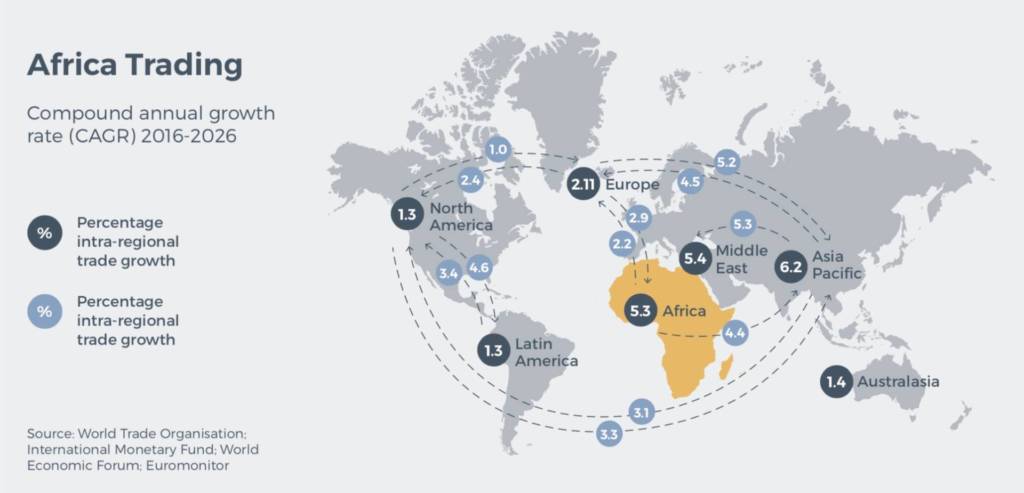
DP: Great, and I guess the consolidation of countries within particular regions to access better infrastructure and have economies of scale is always going to be good for the country, but also, those regions you mentioned. Let’s go into a little bit more detail on north Africa. With regards to oil price, you recently published a report looking at the impact of oil price volatility to African fuel importers of 2019. We know the oil price seems to have strengthened and stabilised somewhat more recently; how closely linked is oil price to the short-, medium- and long-term prospects of the larger oil exporters such as Nigeria, Angola, Algeria, and also Egypt?
RB: EXX Africa did publish a special report in the beginning of January this year, about oil price volatility and the impact this has on Africa.
The report very much focused on volatility being the main risk and that’s what we’ve seen previously. Many African oil exporters and importers are now able to deal with either very high or very low oil prices, by building those into their budgets and provisioning oil imports, etc. The real risk is oil price volatility. So far in 2019, we have seen a bit of a stabilisation at the beginning of the year. However, the oil price still remains very prone to external factors and increased volatility, which remains a risk across the African continent. In terms of Africa’s largest oil producers, however, many of these countries seemed to have learned a lesson from previous drops in oil prices, as in 2015/16 or 2007/ 8 when their budgets were based on very ambitious oil price calculations.
Nigeria, for example, is now basing its budget on the $60 USD per barrel as a benchmark. This has been criticised as potentially too ambitious by some local economists, but it’s certainly more realistic than Nigerian budget calculations in previous generations. Similarly, for Angola and Egypt, with support from the IMF are starting to reform themselves and have learned lessons, in terms of previous oil price shocks. They are better able to prepare themselves in case of any sudden volatility in the oil price. But for countries like Algeria or Sudan, it’s quite different on that level. First of all, these are countries where we’ve seen huge political change over the past few weeks and months, where not much is being reformed in terms of economic and financial policy.
The flip side is that there are a number of African economies which still have very heavy import bills of petroleum products. We’re seeing African fuel importers being less likely to reach economic benefits from potentially lower oil prices in 2019. That’s because many of these economies still remain unreformed, unlike some of the largest oil producers on the African continent. So potentially, Africa could do better off for the lower oil price in general, than with the higher oil prices this year, just in the way that some economies have managed to reform themselves and prepare themselves for any further oil price volatility.
DP: That is a very interesting way of looking at it from the from the other side too. Now closely linked with that our interest rates, will interest rates continue to rise? And should we be concerned about countries with high US dollar debt?
US Dollar Denominated Debt in Africa
RB: Debt is the buzzword at the moment when we’re talking about Africa, You’re right, it has everything to do with what’s happening in the US and what’s happening with the oil price, etc.
Almost all of Africa’s debt remains US dollar denominated – even China’s debt to Africa is mostly US dollar denominated. So what’s happening in terms of the devaluation of African local currencies, and the continued strength of the US dollar, remains a real concern in terms of the servicing of Africa’s debt in US dollars, particularly as a number of countries are running out of US dollars – even countries doing particularly well like Ethiopia. These countries have been saddled with high debt, whether from the Paris Club or from the IMF or from China – these high-debt servicing costs are becoming a real problem.
Over the past few years, we’ve gone through a number of scandals and Republic of Congo, in Mozambique, most notably, and in Zambia to a certain extent, where amounts of debt have been discovered which weren’t properly calculated or disclosed previously. So that also brings us to another argument, in terms of whether more debt in Africa should be based or denominated in local currency. But then again, most of Africa’s revenues are derived from commodities, particularly foreign exchange revenues, which are derived from commodity exports. So it almost makes no sense for many African economies to denominate its debt in local currency. It’s only a country that has a dovish monetary policy and stable central banks like Ghana, Nigeria or South Africa that can issue local currency debt and do issue at the local currency debt on a regular basis. But for many others, like Kenya with an interest rate cap, or Zambia with potential miscalculations on debt it is a completely different scenario.
Debt will remain a key topic in terms of risk and concern throughout 2019, particularly for those countries that remain exposed to high-debt servicing costs.

DP: Thanks Robert. Let’s now move on and look at the recent disruption in Sudan and Algeria. What has happened in 2019 and what are the impacts on trade?
RB: Well, what has happened in 2019 has been quite spectacular in terms of an Africa-focused political risk analyst like myself – we’ve seen a very busy first four months of the year, with crises in Zimbabwe and Gabon across the Sub-Saharan parts of the continent. But as you mentioned, what we’ve seen in North Africa, particularly in places like Sudan, Algeria, and Libya, has been a roller coaster, at least in terms of sudden political change, unrest, the corruption investigation that we’re now seeing. Then there is the succession of military interventions. However, if we look at actual disruption to trade, it has been relatively mitigated.
In a place like Libya, for example, the outflows of the oil sector have not been that affected. Similarly, the flows of trades from south Sudan, particularly the oil that is piped through Sudan has barely been affected.
In Algeria, where the protests do seem to be slowing at the moment, there has been some disruption. But airports and marine ports…most of these supply chains have remained intact and the actual loss to trade values has been, considering the situation, relatively minimal. But that can still change. Political changes we’re seeing in these countries at the moment are very much reminiscent of the Arab Spring in 2011, where countries have fallen into major bouts of unrest, such as civil war, or have become more prone to political instability and terrorism than before.
We’ll have to keep on watching what’s happening in places like Sudan and Algeria very closely over the coming weeks, months and even years potentially. Because this type of instability does open up these countries to other threats, such as more coups or the spread of Islamist terrorists.
DP: Thanks Robert, very good insight there. So, let’s now take a forward-looking view and look at the next couple of years. Which economies are, in your opinion, going to be the winners and losers of 2019 and 2020? Which countries will face adverse economic and financial conditions and what are the opportunities?
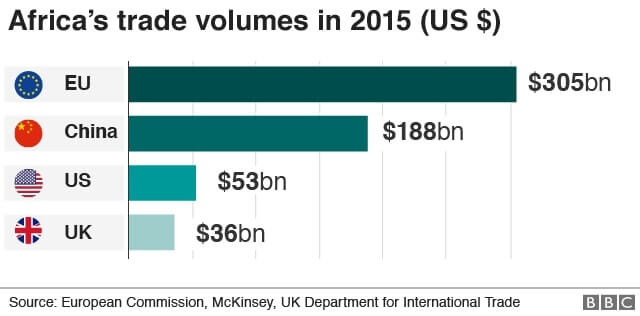
Reform in Africa
RB: It really comes down to which countries are able to reform themselves. Reform is highly complex, particularly from a political perspective. Countries like Ethiopia and Angola, which for years have been very much closed to foreign investment, are now starting to open up; to liberalise and privatise and reform bloated public sector payrolls, to privatise failing and tarnished state-owned enterprises, and to liberalise key sectors. It is these types of countries and in 2019 and 2020, the reforms will stand in their advantage over these coming years. On the flip side, countries that are refusing to reform, particularly countries like Tanzania, which is going back towards the nationalist state interventionist way of the 60s and 70s. Or potentially countries like Algeria, which have failed to reform their oil sectors and their banking sectors over many generations. They could face further economic headwinds over the next few years.
Countries that can reform either internally or with the help of the International Monetary Fund are more likely to be able to weather the global headwinds over the next few years.
DP: Thanks for that. So, bringing this podcast to a close and looking at some of the key themes here, I think debt really is US dollar denominated debt, that is really is a buzzword and a key theme, particularly for any countries which have not yet been reformed. And I guess moving on from that the opportunities really lie around reform, opening up and also working together intra-trade.
RB: Absolutely.
DP: Thank you. Right. We are really looking forward to hearing you speak at TXF Amsterdam in a couple of weeks and we really appreciate your time joining us here at Trade Finance Talks today. Thank you very much for your time, and thanks for speaking with us today.

RB: Thank you, Deepesh.















